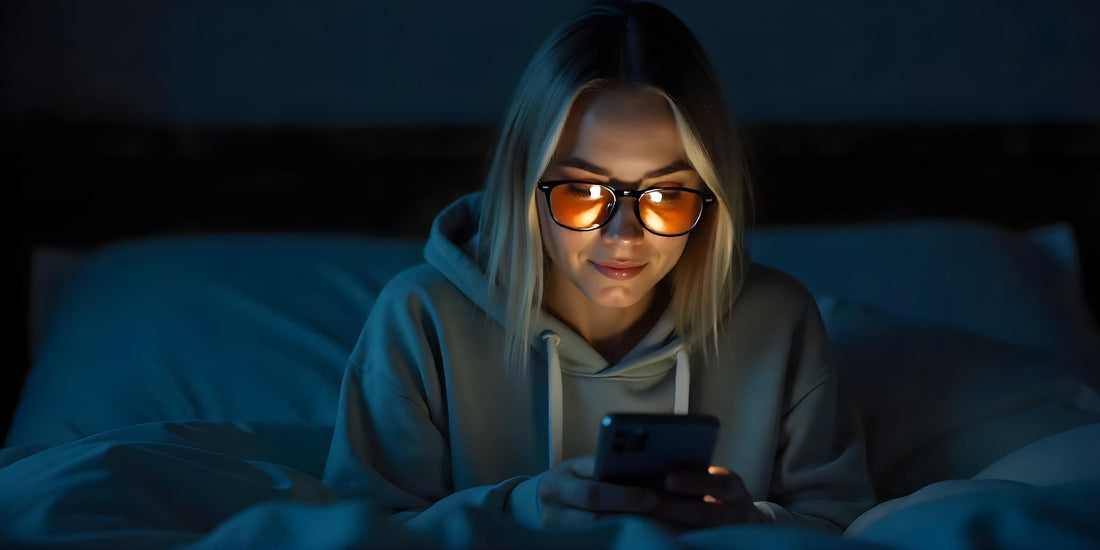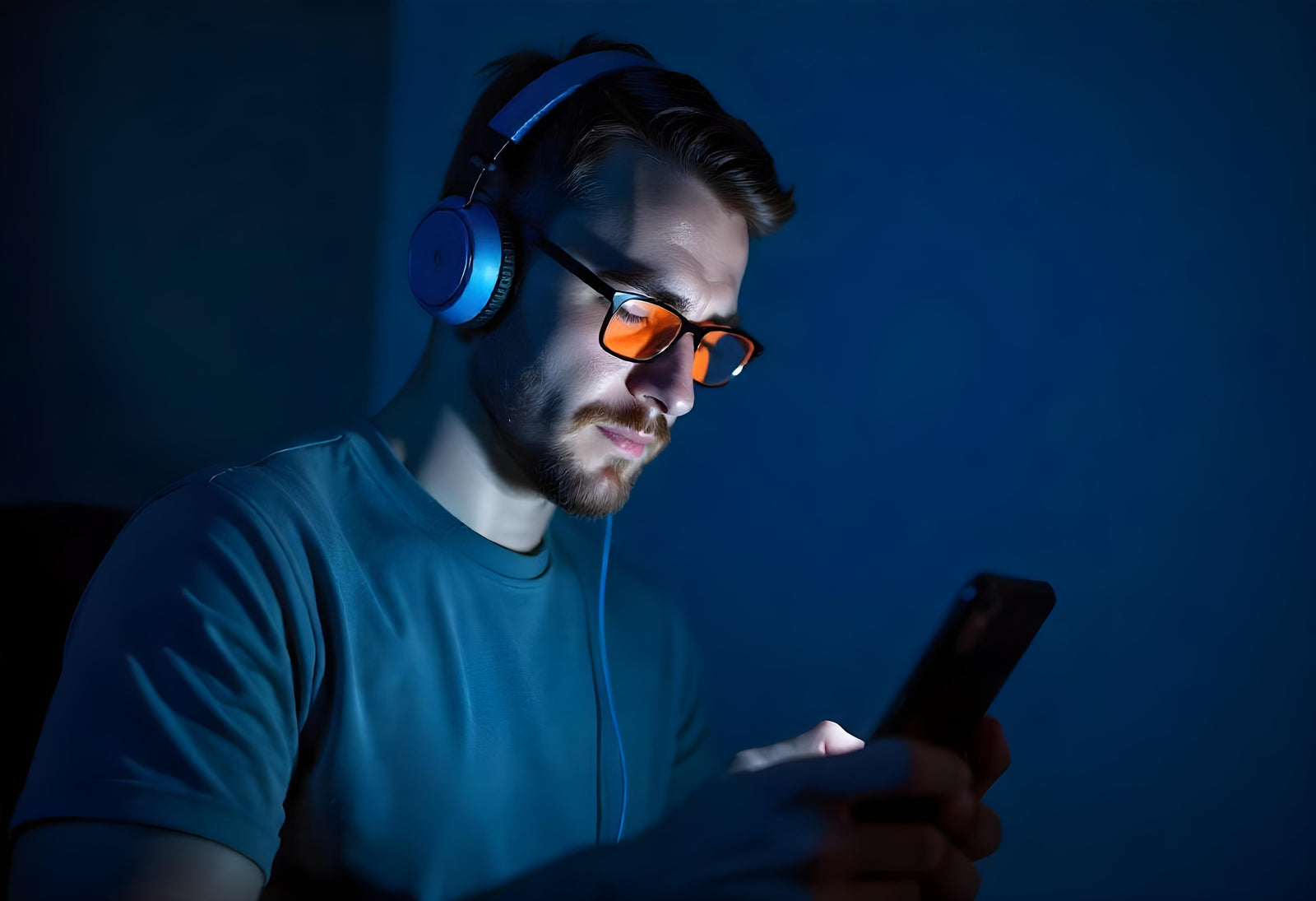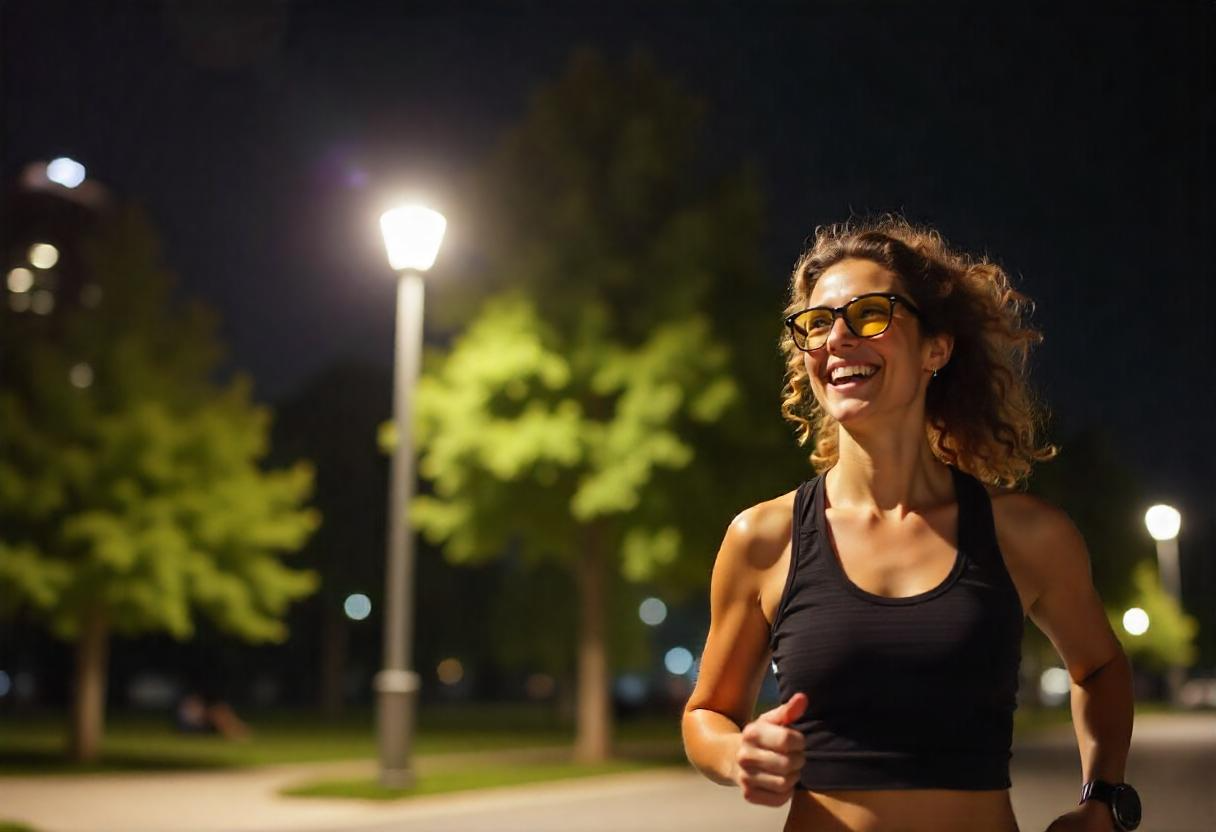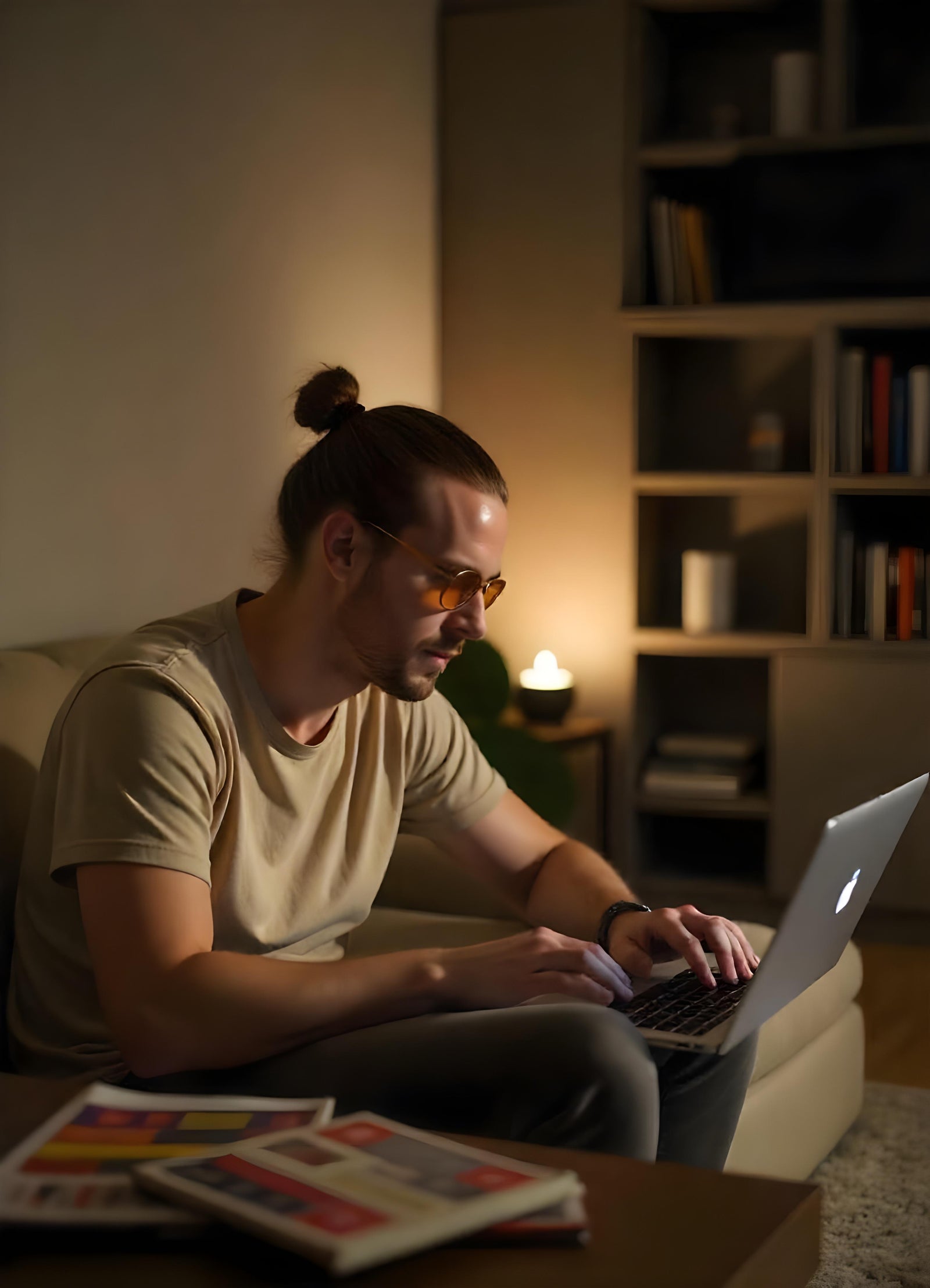
Blue Light Glasses for Better Sleep: Science-Backed Benefits
Ever find yourself lying wide awake at 2 AM after an evening Netflix binge? Your screen's blue light might be sabotaging your sleep more than you realize. Research shows that just 2 hours of evening screen exposure can delay melatonin production by 3 hours—essentially giving you jet lag without leaving your bed.
But here's the good news: blue light glasses can help reset your natural sleep cycle. This guide breaks down exactly how they work, why amber lenses outperform clear ones at night, and when to wear them for maximum effect.

The Science: How Blue Light Hijacks Your Sleep
Your brain uses light cues to regulate your circadian rhythm—the 24-hour internal clock that controls sleepiness and alertness. Here's the problem with artificial blue light:
Melatonin Suppression
Blue light (especially 460-480nm wavelengths) tricks your brain into thinking it's daytime. Studies show it can reduce melatonin by 50% compared to dim light
Delayed Sleep Phase
Evening screen users take 30+ minutes longer to fall asleep and will experience less restorative deep sleep
The Smartphone Paradox
78% of people use phones in bed, 5 minutes of scrolling is enough to trigger wakefulness
Who Needs Blue Light Glasses Most?
✔ Night owls who use screens past 10 PM
✔ Insomnia sufferers
✔ Shift workers with irregular schedules
✔ Anyone who wakes up groggy despite "enough" sleep

Why Nighttime = Orange Lens Time
Not all blue light glasses are created equal. The tint determines effectiveness:
| Lens Color | Blue Light Blocked | Best Use Case |
|---|---|---|
| Clear | 10-20% | Daytime computer work |
| Yellow | 30-40% | Evening TV watching |
| Orange/Amber | 65-98% | 2 hours before bedtime |
| Red | 95-100% | Extreme light sensitivity |
Key Insight: Clear lenses barely make a dent in sleep-disrupting wavelengths. For real results, amber lenses are the gold standard 2 hours before bed.
5 Evidence-Based Benefits of Nighttime Blue Light Glasses
Fall Asleep 20% Faster
University of Houston study: Participants fell asleep 58% quicker wearing amber lenses vs. clear
Increase Melatonin by 58%
Harvard research shows orange lenses restore near-normal melatonin levels
Improve Sleep Quality
More time in deep (Stage 3) and REM sleep
Reduce Midnight Wake-Ups
Less disruption of circadian-driven sleep cycles
Morning Alertness Boost
Wake up feeling refreshed, not groggy
Pro Tip: Combine with night mode settings on devices for double protection.

When to Wear Them for Maximum Effect
The 2-2-2 Rule:
2 hours before bedtime
2 devices (phone + laptop/TV)
2 weeks of consistent use to notice benefits
Best Times to Start Wearing:
- After dinner if you use screens
- During late-night work sessions
- When traveling across time zones
FAQs: Blue Light Glasses & Sleep
How Long Before Bed Should I Wear Them?
Start 2-3 hours before bedtime for optimal melatonin protection. Even 60 minutes helps.
Can I Wear Them All Day?
Avoid daytime overuse—some blue light (especially before noon) helps maintain healthy circadian rhythms.
Do They Work If I Still Look at Bright Screens?
Yes, but dim your screens for best results. Glasses + reduced brightness = strongest effect.
What About Blue Light Screen Filters?
Software filters (like Night Shift) only reduce blue light by 30%—amber lenses block 3x more.
Will They Help With Sleep Disorders?
Research shows promise for delayed sleep phase disorder, but consult a doctor for chronic insomnia.

Final Verdict: Your Nighttime Game Changer
If you're serious about improving sleep quality, amber blue light glasses are one of the easiest, most effective tools available. Just remember:
Orange/amber lenses work best
Wear them 2+ hours before bed
Be consistent for 2+ weeks
Your future well-rested self will thank you.










